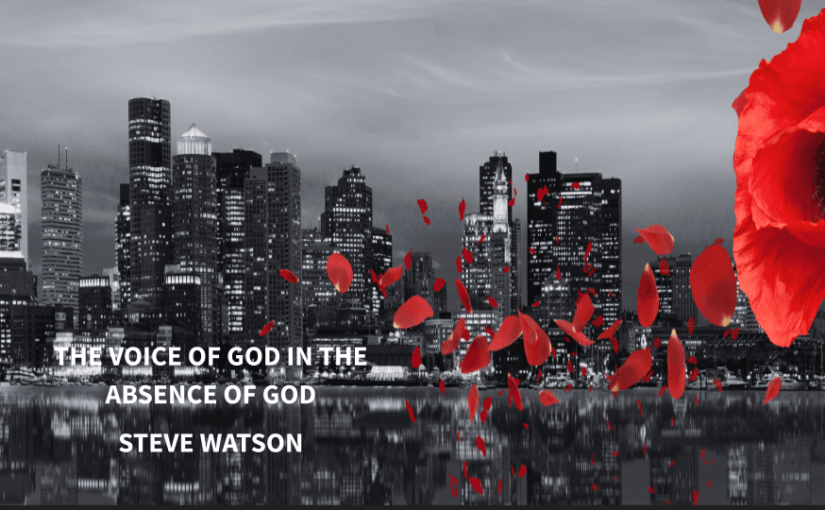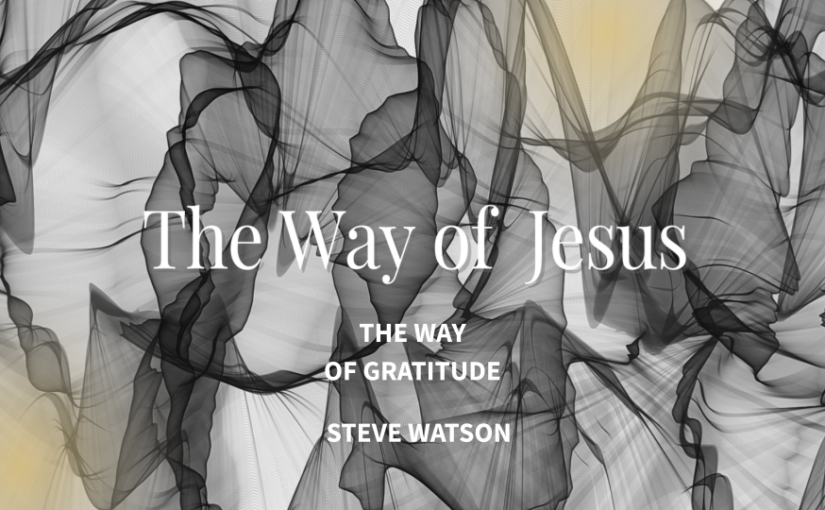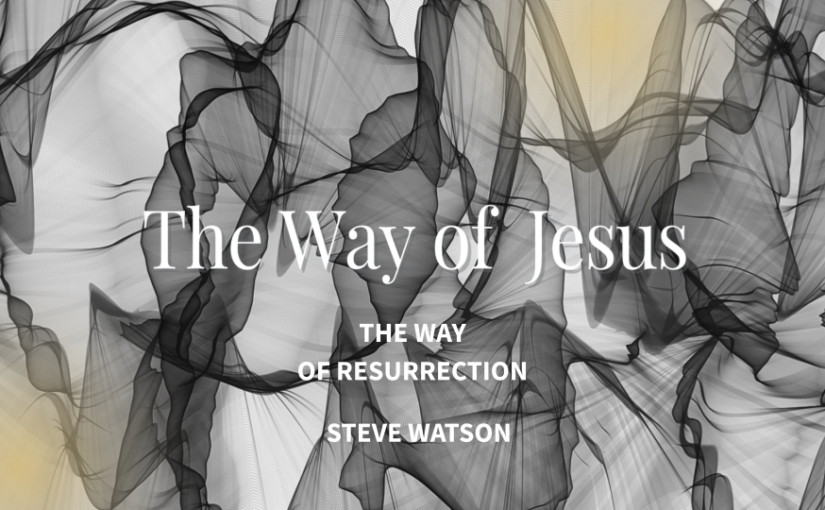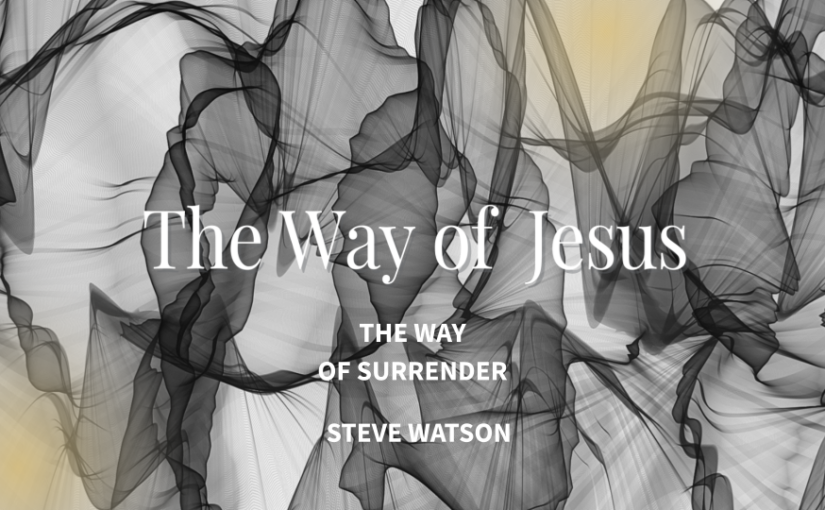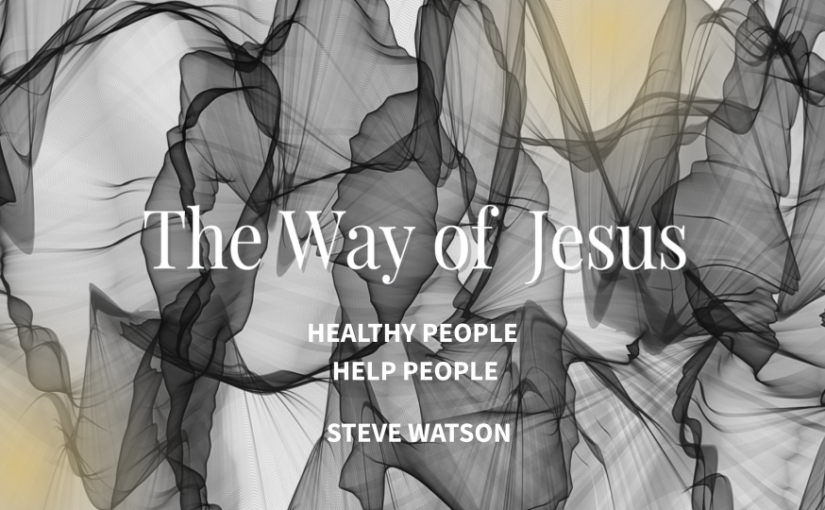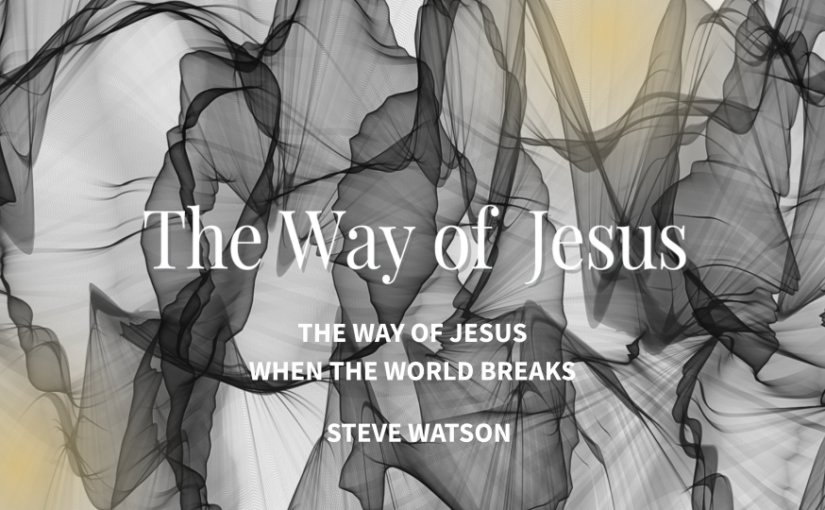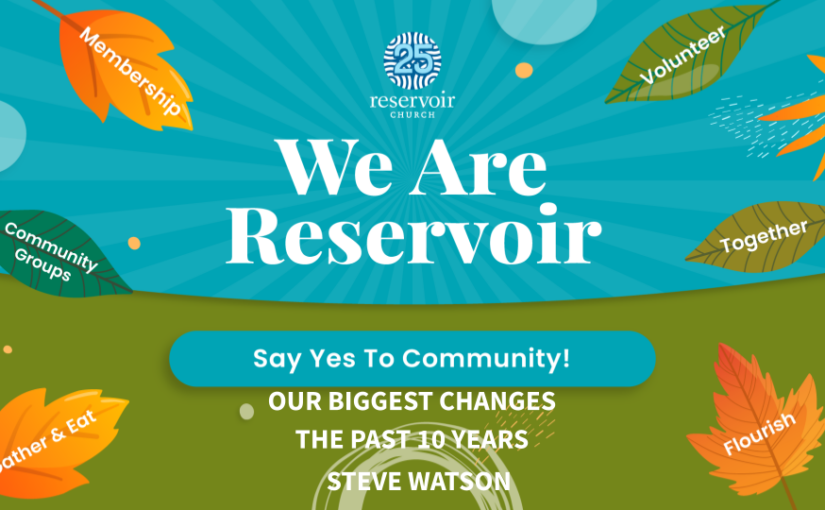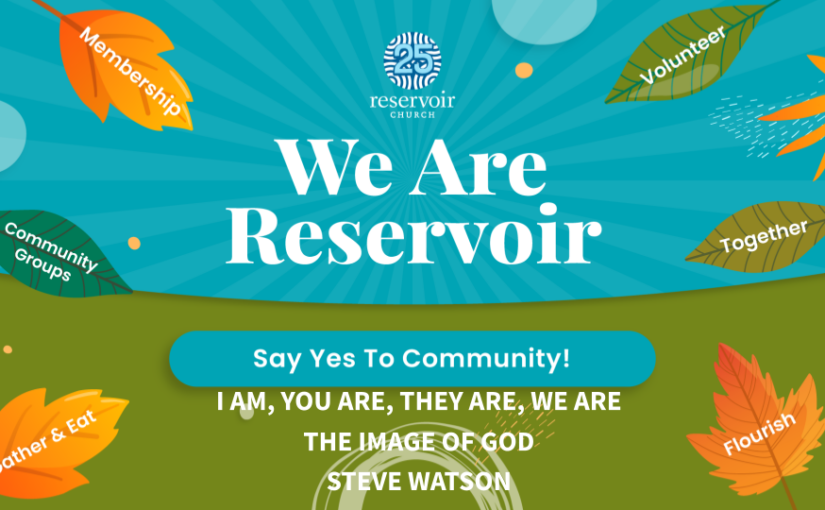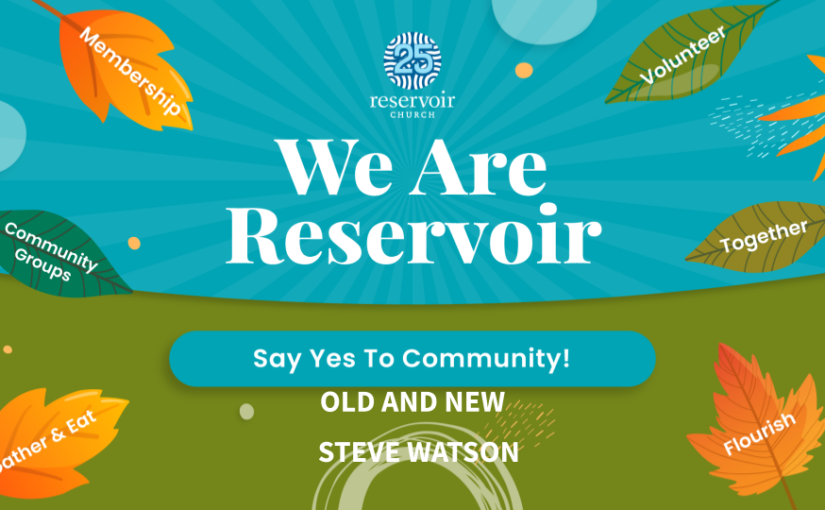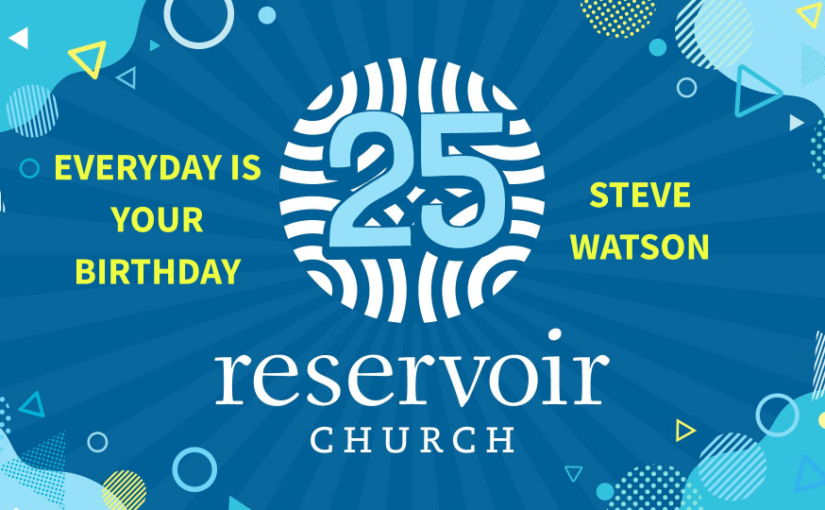Welcome again to the season of Advent, my friends.
Advent, these four weeks before Christmas, welcomes God with us in the person of Jesus. It’s a season of presents and parties and singing and prayer and family, for some of us the most wonderful time of the year.
But for some of us, so much not that.
Advent is colder and darker days, sunset at 4:00. It’s busyness and debt and hard family situations and reminders of losses and griefs old and new. The most ambivalent, or even painful, time of year. Not so good for a song.
This advent, I’m spending part of the evening along with Grace in our church’s beautiful Advent devotional Bless Us. You can find that online at our website. We’re entering Week Two. Highly recommend.
But in the mornings, on my own, I’m looking at another Advent devotional by Kathy Escobar. It’s called A Weary World. This is a guide for those of us who are less in a Merry Christmas space, and more ready for a blue Christmas. It’s a guide into Advent for those of who are anxious, sad, or lonely.
Advent, this season of longing for God with us, does not start with where we wish we were or where we want to get. Advent, like we explored in our liturgy last Sunday, advent starts wherever we are right now.
And so, to help us toward the presence of love, joy, and peace that we may seek in this season, it might help to start by noticing where we feel the absence of those things.
To see and find the communicating presence of God, Advent is a good time to notice all the places we sense the absence of God.
Where God is not, best as we can tell, is a good space to start.
Our sorrows, our losses, our pains of waiting – this is where we long for God.
Or as Fleming Rutledge puts it: Advent begins in the dark.
Advent begins in the dark.
Friends, I don’t know all the public griefs and anxiety and weariness of our world that is heaviest to you in this season, although I have some sense of that. And I’ll end our sermon on longing for God in public darkness, and we’ll pray and lament together, specifically around the enormous suffering and death of people, especially of children, in Palestine right now.
This isn’t a taking sides moment. As I’ve shared, I was crushed by Hamas’ violent, brutal murders and kidnapping of Israelis in early October, and I grieve with my Jewish and Israeli neighbors. I continue to do so, in multiple ways.
But in the two months since, Israel’s war on Hamas has resulted in many thousands of deaths in Gaza, and in great suffering for Palestinians in both Gaza and the West Bank. Jesus of course was born in Bethlehem, which is behind the Wall now in Palestine’s West Bank. And we are living through a kind of massacre of infants as collateral of war in this land. So our team felt like we couldn’t celebrate Christmas without grief and solidarity. We’ll end the sermon there.
And before then, I want to speak to whatever more private griefs or loss or anxiety or weariness you may bring into this season. I know the stories for some of you – for some of us, they are so big, so heartbreaking.
I too know some of my own grief and anxiety in this season. So we’ll start there.
If at any point in the sermon, you become aware of your own sense of where God seems absent, I encourage you to bring that into this space of worship intentionally. We have papers and pens around the chairs for you.
I ask you to name a private or public grief, anxiety or sadness on it. Name it as a word or phrase, or name it as a prayer – God, speak to me in XYZ.
During communion and at the end of service, you can place those prayers, those experiences of weary world in the envelopes on the walls as a prayer for God to speak to you, right where you are.
Let’s practice.
Pray with me.
God, please speak to me in my anxiety over my children.
God, speak to our world in the deaths of children in Palestine.
Our loving God with us, please speak to us all in our griefs, our fears, our big, wide messy, weary world. Help us begin again in the darkness.
Amen.
We’ve got two scriptures for today, both from the first two weeks of our Advent devotional guide. The first is from the very beginning of the Bible, in the tragedy of Adam and Eve.
Genesis 3:8-9 (Common English Bible)
8 They heard the sound of the Lord God walking in the garden at the time of the evening breeze, and the man and his wife hid themselves from the presence of the Lord God among the trees of the garden.
9 But the Lord God called to the man and said to him, “Where are you?”
This year’s theme for Advent is the voice of God.
And some of the times God seems to speak most clearly are when people are walking away.
Some of the best interactions with God seem to happen just while people are giving up on God.
In the life of Jesus, two friends are walking away from Jerusalem. They’re traveling home on what was called the Emaus road. They are in despair over the absence of God. Where they wanted God most, all they sensed was the failure of God. And Jesus appears to them and speaks.
Here, in the creation epic, Adam and Eve’s totally beautiful life is turning absolutely tragic. They have listened to the voices of scarcity and fear in their hearts, in their society, when the truth was there was plenty and nothing to worry about. Caving to that constant sense of never enough will break us all.
And they mismanage their garden and their relationship and descend toward shame and blame and hardship.
But on the way, God comes looking for them. The poetry of the old story is beautiful. As Adam and Eve are lost in their failure and shame, God’s out walking among the trees of the garden. And God speaks.
In both of these stories, God doesn’t start with a lecture or a statement or a lesson. No, God talks the way God loves to talk with us.
God asks us a question.
To the two friends walking down their lonely road, Jesus just asks,
“Hey, what are you talking about?”
To this couple in despair, God says to them,
“Where are you?”
This is mostly how God speaks to us friends. Not looking so much to declare or teach or explain, but to engage us. To know and be known. To find out where we are, and how we are doing, so God can meet us there. Maybe to help us figure out where we are going and how we are doing so we can find God in those very places.
A psychologist whose work I follow once pointed out that religion tends to focus on the process of humans knowing God.
- Where is God?
- What is God like?
- What does God do?
- What does God command?
And fine, this is interesting to us, sometimes helpful.
But for our well-being, our sense of belonging, our finding ourselves at home in our lives – and all the growth and health that comes from that, more important than what we think we know about God, is our faith and our experience that we are known by God.
God pays attention.
God sees, God hears.
We are not alone. We matter to God. And everywhere, always, God is with us.
Maybe this is why God leads with questions, because God wants to know us. God doesn’t want to talk at us but engage with us. God wants us to know that we are known.
Friends, I teach this with you. I mostly try to live what I teach, really.
But as I said, I’ve had my own private spaces where I sense God’s absence. Some of those are old stories in me, but there have been some fresh anxieties for me in this season. Maybe two big ones in particular.
One of them has had to do with my work here at church. I’m not going to share the details, because objectively, this thing I found myself anxious about is going fine, actually going well. But I got my head in kind of an intense place about this that wasn’t helpful. My faith, my motivation, my hope all felt weak, which is some of what the absence of God looks like.
And the other has to do with a couple of people I’m close to that I worry about. And these stories are private, they aren’t really mine to tell. But let’s just say I come honestly to the anxiety here.
And here too, I’ve felt stuck. I’ve sensed the absence of God.
Then about a month ago, I started breaking out in hives every day – really red, itchy skin – different places every day. Total drag.
(By the way, I share this in public at some risk. Friends, I am not looking for medical advice. I have seen a doctor – two doctors. I have a plan, it’s working.)
But before I found my plan, my wife Grace asked me:
Maybe it’s because you’re stressed, do you think?
Now this isn’t what my doctor thinks, but at the time Grace’s question was provocative for me. I didn’t feel defensive, which I can. But this time, I felt curious. I was like: I think I am stressed, why is that?
That question, which came to me through my best friend, I feel like that question came from God too.
Where are you, Steve? Can we talk? Why are you so stressed?
Other questions emerged. I found myself emailing with two of you at church – a Board member, another trusted leader – about the church thing where I sensed God’s absence, and neither of them asked me a question, but something about opening up the topic, bringing my concerns out into the light was clarifying.
This is the way life works, mostly.
In secrecy, bad things grow and thrive. Whereas in honesty, in the open, the light gets in and clarifies and heals.
And so it was. As I was writing one of those emails, this wave of insight just kind of came over me.
What are you feeling, Steve? And what is this really about?
And I thought: oh, it’s not about what’s happening at Reservoir in 2023 at all, is it?
This is tapping old stories in my life. This is little Steve Watson, growing up in North Shore in the 70s and 80s, getting activated.
Old family stories of failed plans, and crushed dreams, and never enough money, and things falling apart – those stories were getting activated in me.
And seeing the truth about where I was at – pretty stressed, old anxieties getting reactivated in me – that clarity about where I was helped me know what to do.
I know what to do when I’m afraid of failure or not enough money or not enough whatever. I go to gratitude to ground me in truth that there is enough for me in God, and there can be enough for us all in this world.
So I read and thought about gratitude. I preached on it here two weeks ago. I wrote some thank you cards, did one of those Asha thank yous I told you about where you write a thank you note to someone and read it out loud to them.
This gratitude made my heart very full. Very full.
Because like I’ve said, it’s hard to be grateful and anxious at the same time. The gratitude shifts things.
And I started paying attention to the voices of encouragement in my life. Encouraging emails from a couple of you. Encouraging words in my daily Bible reading. Encouraging words I sensed for me from God as I prayed.
Encouragement strengthens you. It strengthens me.
It’s not what we call spiritual bypassing. That’s using God, or prayer, or church or religion to avoid bad feelings. It’s encouraged sometimes in the church.
Avoid experiences, realities, truths that are sad or hard. Just look on the bright side.
That doesn’t help or heal. It only pushes our problems underground for a while, until they show up again bigger and more unruly.
This is different. Telling the truth about where we are, but hoping even a little bit that God is still there, that God has something to say – or at least something to ask – and then waiting and responding to what comes.
That’s faith. That’s Advent, that’s Jesus, that’s the Spirit of God doing its thing in the dark.
Friends, if you sense God’s absence somewhere, don’t avoid that. Face it. Tell the truth. And hold it before God, and before friends if you can too, in the light, and see what happens.
The whole write it on the paper and put it on the wall today in church – that exercise is a way to start.
Friends, I mentioned that our sense of God’s absence, and God finding us there, isn’t just private, it’s connected to the big public world we experience together.
And I want to read one more scripture to take us there. It’s from the second week of our guide, also from the big, beautiful 8th chapter of the letter to the Romans. Our bit goes like this:
Romans 8:22-26 (Common English Bible)
22 We know that the whole creation has been groaning together as it suffers together the pains of labor,
23 and not only the creation, but we ourselves, who have the first fruits of the Spirit, groan inwardly while we wait for adoption, the redemption of our bodies.
24 For in hope we were saved. Now hope that is seen is not hope, for who hopes for what one already sees?
25 But if we hope for what we do not see, we wait for it with patience.
26 Likewise the Spirit helps us in our weakness, for we do not know how to pray as we ought, but that very Spirit intercedes with groanings too deep for words.
This is to me one of the truest and most beautiful bits in the Bible.
What is all of creation doing but suffering?
We see this in Israel, generations of trauma re-evoked by the most violent attack in its history this October.
We see this in Palestine, whose occupation and lack of freedom are often forgotten and neglected by much of the world, but before us now again as thousands of civilians, including thousands of innocent children are killed in Israel’s war on Hamas.
This is big and important. It is the land of the birth of most of the world’s faith. The land of the birth of Jesus. It matters greatly.
But truthfully, it is also one great suffering that has our attention now, amidst so many sufferings in creation. Deaths of children, degradation of the environment, the suffering of so many people and animals and other creatures.
It feels so much like the absence of God.
We’re told here, though, to listen for the groans that come out of suffering.
For me, in Palestine and Israel, I’ve tried for two months to listen to the grief. And for me, voices of grief I particularly trust are those of The Parents’ Circle – Palestinian and Israel parents who have had children killed in the conflict, and who now work toward just peace by grieving together.
Two men from this circle who I have met and embraced are a Palestinian Muslim named Basim Aramin and an Israeli Jew named Rami Elhanan. Basim grew up in the West Bank and as a teenager, the only Israeli Jews he ever saw were occupying soldiers. He had seen a solider shoot a child, watched that child die. He understandably hated them. As a teenager, he’d throw things at Israeli soldiers – sticks, rocks, bottles, once at 17, an old hand grenade he and friends found in a cave. It didn’t explode. No one was hurt. But he was arrested, he did seven years in an Israeli prison. Prison mostly radicalized him toward greater resentment and hate, as prison is good at doing, actually.
But a set of interactions with a single guard began to change this. This one guard treated him with respect and dignity, like a human. This guard acknowledged he was not a settler, but had rights to land and freedom. Basam’s journey toward the humanization of the enemy continued more and more over time. He eventually earned a university degree in history, with a specialization in Holocaust studies, as he sought to advocate for his people, while having empathy for his enemies.
All this was sorely tested when Basam’s daughter was killed by a rubber bullet, fired by an Israeli soldier into a crowd.
The same was true for Rami Elhanan. When he was a young man, he served in the military, as all young adults in Israel do. He served in the early 70s, during war time, and most of his friends were killed in that war. He had a great deal of anger and hatred within as a result.
Years later, his daughter was killed by a Palestinian suicide bomber. His anger, his hatred inflamed so much more. And he stayed in this place for a couple of years, until he began to meet a few Israeli Jews older than him who also had lost children in the conflict, but who had decided this created an urgent need to struggle for peace. Through them, he met dozens of Palestinian Arabs who had lost children as well, and grieved with their Israeli Jewish counterparts. This so surprised and shook him, that he was drawn to join this movement of grieving parents who seek just peace together.
I listened to them both in an online seminar last week, as Basam continues to insist on the need for freedom and safety for Palestinians, just as he insists upon the same for Israeli Jews. He says – one state, two states, five states, I don’t care, but none of us are going anywhere. We need to see the humanity of one another, and insist upon human rights and dignity for us all.
And even as Rami continues to grieve Israeli losses from October, and the grief of hostages taken, he says – hard as it is now, we need to step back and look at the causes of all this. Hamas is awful, he says, but Hamas did not create the conflict or the occupation. The occupation and the conflict created Hamas. We need to end the occupation, and we need to make peace for us all.
Hope is hard to find around this conflict right now, because justice and peace can not be seen. Not even hints of it maybe. But in these men, in many others, I hear at least the foundation of some hope.
Could their groans also be labor pains? This longing, this groaning for better – could there be a birth of more justice, more peace, more shared human recognition of dignity that creates the conditions for peace. Maybe, all we have is a maybe, but sometimes that’s all we get to struggle for what’s good.
And with the Spirit’s help, perhaps we can hope with them, with groans too deep for words.
After all, all of creation, the scripture tells us, is hoping for two things – for adoption, for us all to know and be afforded and live within the full dignity of children of God, who are treasure, who belong. And redemption, that good can always grow out of evil, that even the hardest ground can birth something good again.
Friends, I want to lean into these groans, these groans that hope for adoption and redemption to be manifest.
We’ll do so with this lament over the suffering of Palestine, in hopes that it will be what it is, and that it will perhaps keep teaching us to groan in hope amidst suffering, to yearn for the light to shine amidst the greatest darkness, and to look for the communicative, loving presence of God where God seems most absent.
You can listen if you like. Or pray these words aloud with me.
LAMENT


